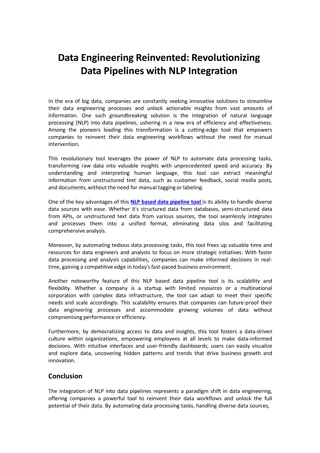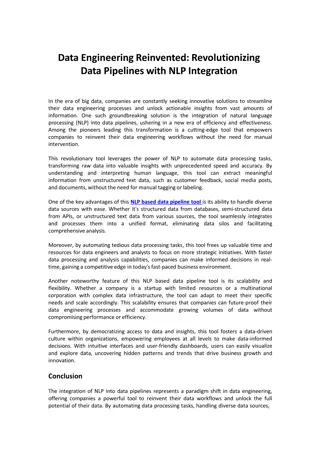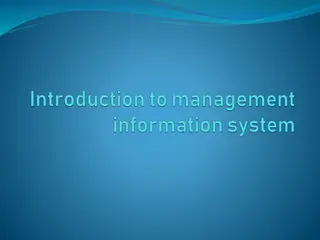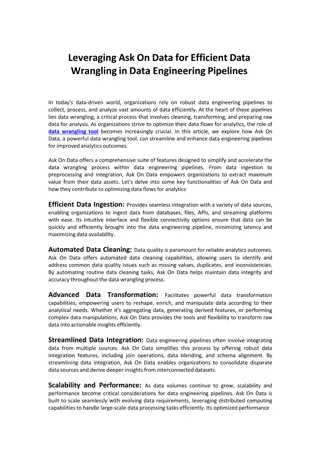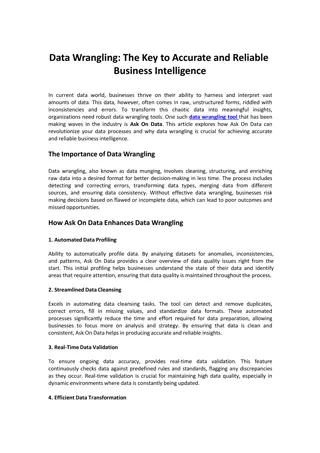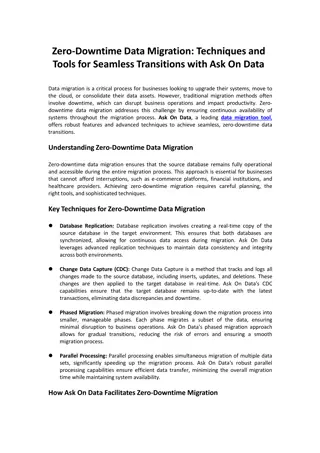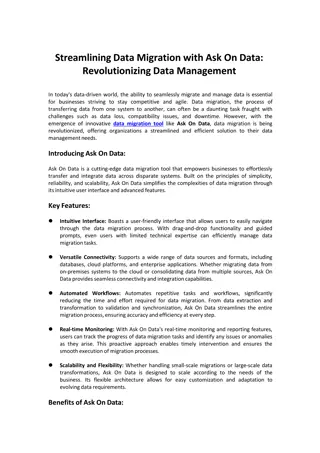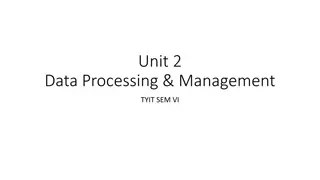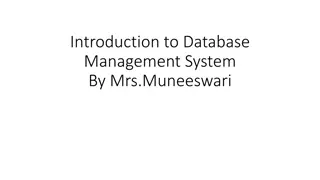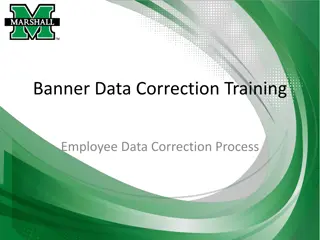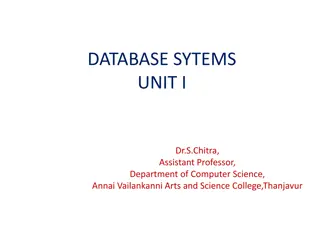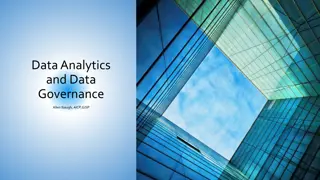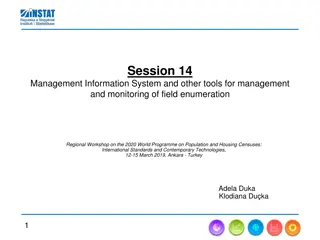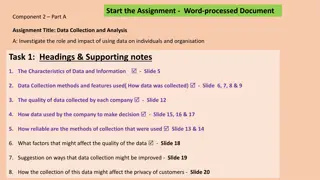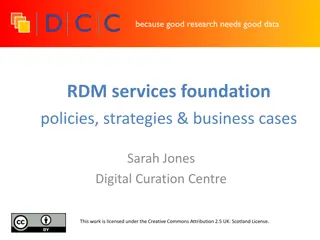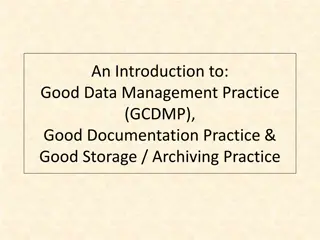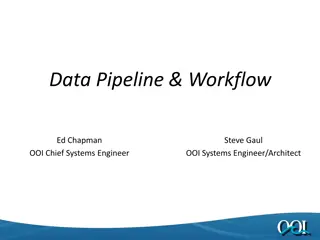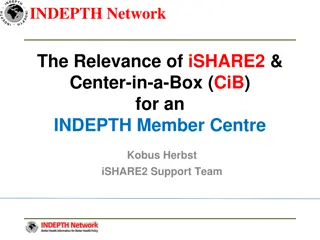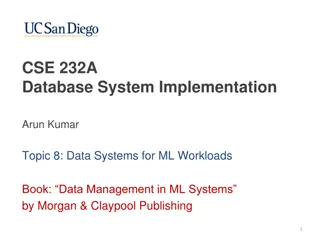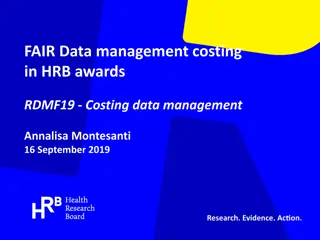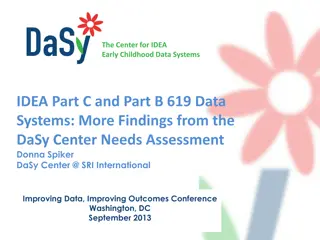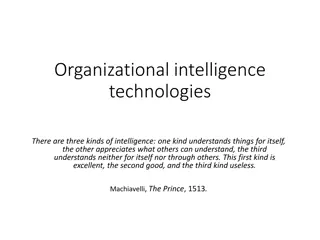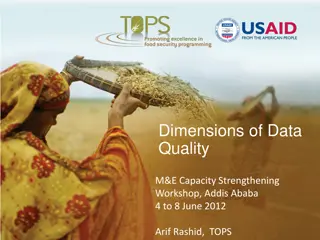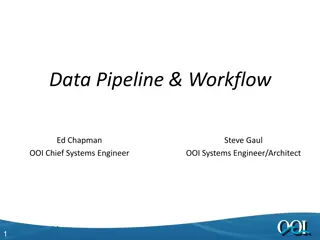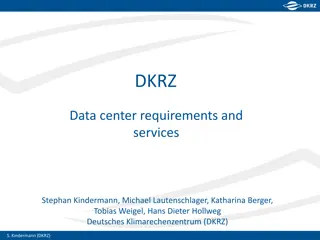Understanding Management Information Systems (MIS) in Business Organizations
Explore the world of Management Information Systems (MIS) in business settings, covering topics such as sales, supplier management, purchase orders, forecasting, stock details, customer orders, dispatch instructions, financial transactions, and more. Gain insights into the role of MIS in bringing or
2 views • 38 slides
Overview of Distributed Systems: Characteristics, Classification, Computation, Communication, and Fault Models
Characterizing Distributed Systems: Multiple autonomous computers with CPUs, memory, storage, and I/O paths, interconnected geographically, shared state, global invariants. Classifying Distributed Systems: Based on synchrony, communication medium, fault models like crash and Byzantine failures. Comp
9 views • 126 slides
Operating Systems
An operating system is a crucial program that manages all other programs on a computer. It handles tasks like input recognition, file management, and device control. There are different types of operating systems such as single-user, single-task systems, multi-user, multi-task systems, real-time ope
6 views • 11 slides
NCI Data Collections BARPA & BARRA2 Overview
NCI Data Collections BARPA & BARRA2 serve as critical enablers of big data science and analytics in Australia, offering a vast research collection of climate, weather, earth systems, environmental, satellite, and geophysics data. These collections include around 8PB of regional climate simulations a
6 views • 22 slides
Understanding Information Systems in Organizational Management
Management in organizations is divided into three levels: operational, tactical, and strategic. Each level requires different information systems to support various activities. Operational systems focus on routine transactions and control processes, while middle-level systems aid in semi-structured
9 views • 39 slides
Revolutionizing with NLP Based Data Pipeline Tool
The integration of NLP into data pipelines represents a paradigm shift in data engineering, offering companies a powerful tool to reinvent their data workflows and unlock the full potential of their data. By automating data processing tasks, handling diverse data sources, and fostering a data-driven
9 views • 2 slides
Revolutionizing with NLP Based Data Pipeline Tool
The integration of NLP into data pipelines represents a paradigm shift in data engineering, offering companies a powerful tool to reinvent their data workflows and unlock the full potential of their data. By automating data processing tasks, handling diverse data sources, and fostering a data-driven
7 views • 2 slides
Understanding Management Information Systems (MIS)
Management Information Systems (MIS) are vital for collecting, processing, and analyzing data in business activities. They assist decision makers, facilitate communication, and maintain records. Components include people, data, business procedures, hardware, and software. Various types of informatio
2 views • 11 slides
Ask On Data for Efficient Data Wrangling in Data Engineering
In today's data-driven world, organizations rely on robust data engineering pipelines to collect, process, and analyze vast amounts of data efficiently. At the heart of these pipelines lies data wrangling, a critical process that involves cleaning, transforming, and preparing raw data for analysis.
2 views • 2 slides
Data Wrangling like Ask On Data Provides Accurate and Reliable Business Intelligence
In current data world, businesses thrive on their ability to harness and interpret vast amounts of data. This data, however, often comes in raw, unstructured forms, riddled with inconsistencies and errors. To transform this chaotic data into meaningful insights, organizations need robust data wrangl
0 views • 2 slides
Data Migration Tools and Techniques for Seamless Transitions with Ask On Data
Data migration is a critical process for businesses looking to upgrade their systems, move to the cloud, or consolidate their data assets. However, traditional migration methods often involve downtime, which can disrupt business operations and impact productivity. Zero-downtime data migration addres
1 views • 2 slides
Know Streamlining Data Migration with Ask On Data
In today's data-driven world, the ability to seamlessly migrate and manage data is essential for businesses striving to stay competitive and agile. Data migration, the process of transferring data from one system to another, can often be a daunting task fraught with challenges such as data loss, com
1 views • 2 slides
Evolution of Data Processing Systems in Geographic Information Science
Data processing systems in Geographic Information Science have evolved from manual, analogue methods to advanced software and hardware components. The incorporation of Geographic Information Systems (GIS) has revolutionized the handling and analysis of geo-referenced data, making tasks like data cap
0 views • 20 slides
Introduction to Database Management System Explained
This presentation covers the basics of database management systems, including definitions of data, types of data, structured and unstructured data, storing data in computers using file systems and database systems, and issues with file systems like data redundancy, inconsistency, difficult data acce
1 views • 18 slides
Understanding Different Types of Recommender Systems
Recommender systems play a crucial role in providing personalized recommendations to users. This article delves into various types of recommender systems including Collaborative Filtering, Content-Based, Knowledge-Based, and Group Recommender Systems. Collaborative Filtering involves making predicti
0 views • 7 slides
Data Management Process for Ensuring Data Integrity
This presentation covers the process of data correction and management within an organization. It explains the roles and responsibilities of Data Stewards and Data Custodians in maintaining data quality, accuracy, and security. Bug-D automates processes to ensure high data integrity, with stewards r
0 views • 10 slides
Introduction to Embedded Systems Design
Embedded Systems Design, Chapter 1 provides an insightful overview of embedded systems, distinguishing them from general-purpose computers. The chapter delves into the characteristics of embedded systems, their design considerations, and the various types of embedded computers such as general-purpos
1 views • 7 slides
Understanding Database Systems in IT
Database systems play a crucial role in managing and organizing data efficiently. They provide a structured environment for storing and accessing information, enabling various applications in sectors like banking, airlines, universities, sales, and more. The transition from traditional file systems
3 views • 38 slides
Understanding Data Governance and Data Analytics in Information Management
Data Governance and Data Analytics play crucial roles in transforming data into knowledge and insights for generating positive impacts on various operational systems. They help bring together disparate datasets to glean valuable insights and wisdom to drive informed decision-making. Managing data ma
0 views • 8 slides
Effective Management Systems for Field Enumeration in Population and Housing Censuses
Management Information Systems and tools play a crucial role in monitoring and managing field enumeration activities during population and housing censuses. Real-time monitoring of enumeration status, quality control measures, and data transmission to headquarters are essential for a successful enum
0 views • 13 slides
Guidebook for Managing Data from Emerging Technologies in Transportation
This guidebook explores the challenges and benefits of managing data from emerging technologies in transportation. It discusses the significance of big data, the need for a modern approach to data management, and offers a roadmap for agencies to transition towards this data management strategy. The
2 views • 21 slides
Understanding Data Collection and Analysis for Businesses
Explore the impact and role of data utilization in organizations through the investigation of data collection methods, data quality, decision-making processes, reliability of collection methods, factors affecting data quality, and privacy considerations. Two scenarios are presented: data collection
1 views • 24 slides
National Conference on Early Childhood Data Systems
The National Conference on Early Childhood Data Systems focused on federal investments in developing state-level data systems for early childhood education. The event covered the importance of integrated data systems, challenges, and opportunities for researchers. It highlighted the roles of differe
0 views • 29 slides
Essential Considerations for Implementing Research Data Management Services
Research data management services are vital for facilitating good research practices. This includes developing RDM policies, strategies, and business cases, along with providing necessary services such as data management planning, active data management, preservation, and training. Starting with a c
0 views • 26 slides
Importance of Good Data Management Practices in Clinical Research
Learn about Good Data Management Practice (GCDMP), Good Documentation Practice, and Good Storage & Archiving Practice in clinical research. Understand the significance of data, key data collection processes, best practices for reporting data in CRF, importance of documentation, and data storage/arch
0 views • 40 slides
Data Pipeline and Workflow for OOI Systems Engineer/Architect
Steve Gaul and Ed Chapman, Chief Systems Engineer and Systems Engineer/Architect of OOI, aim to address areas related to data pipeline, workflow, sensing, ingest, data versioning, schema storage, and product delivery by 9/17/2024. The project also involves deploying platforms, instruments, algorithm
0 views • 32 slides
Dynamic Data Management Systems in Agile Views
Large, dynamic data user and enterprise-generated data are increasingly popular, leading to the need for better data management systems. Today's approaches involve handling evolving datasets, algorithmic trading, log analysis, and more. The DBToaster project focuses on lightweight systems for managi
0 views • 37 slides
Information Systems in Organizations: Overview and Implementation
Information systems play a crucial role in organizations, encompassing transaction processing systems, functional area information systems, and enterprise resource planning systems. This content delves into the purpose of transaction processing systems, the support provided by information systems ac
0 views • 30 slides
Enhancing Data Management in INDEPTH Network with iSHARE2 & CiB
INDEPTH Network emphasizes the importance of iSHARE2 & CiB to enhance data sharing and management among member centers. iSHARE2 aims to streamline data provision in a standardized manner, while CiB provides a comprehensive data management solution. The objectives of iSHARE2 include facilitating data
0 views • 17 slides
Understanding Durability and Integrity in Data Storage Systems
Durability and integrity are crucial aspects of data storage systems. Durability ensures data survives faults like crashes and power loss, while integrity ensures data correctness in the face of faults. Disk data is durable due to surviving power loss, and has integrity through explicit and complex
0 views • 24 slides
Data Systems for Machine Learning Workloads and Advanced Analytics
This content explores the intersection of database systems with machine learning workloads, covering topics such as big data systems, ML lifecycle tasks, popular forms of ML, and data management concerns in ML systems. It delves into the importance of ML systems for mathematically advanced data anal
0 views • 21 slides
Simpler Systems Reporting Pilot for Financial Data Enhancement
The Simpler Systems Reporting Pilot is underway to enhance financial data reporting at the university campus. Led by Vice President Ryan Nesbit's team, this initiative aims to improve University-wide financial reporting mechanisms and accessibility to data through the Simpler tool. The pilot include
0 views • 5 slides
Managing Data Costs and FAIR Data Practices in Research Awards
This document discusses the costing and management of research data in HRB awards, highlighting the importance of FAIR data principles. It covers responsibilities, budgeting for data management, eligible costs, and the process from application to post-award management. Key activities involve liaisin
0 views • 10 slides
Early Childhood Data Systems Governance and Data Quality Assessment
This content highlights the importance of data governance in early childhood data systems, focusing on Part C and Part B 619 data systems. It discusses the findings from the DaSy Center needs assessment, covering topics such as data governance, data quality, and procedures for ensuring accurate and
0 views • 23 slides
Understanding Embedded Systems and Cyber-Physical Systems
Embedded systems are specialized computer systems embedded within larger systems, such as control systems and car controllers. This lecture covers real-time aspects, applications of Cyber-Physical Systems (CPS), and examples like the Boeing 777/Airbus A380 cockpit. It discusses the design process of
0 views • 22 slides
Understanding Organizational Intelligence Technologies
Organizational intelligence technologies involve three kinds of intelligence - understanding independently, appreciating what others can understand, and understanding neither for itself nor through others. This concept emphasizes the importance of collecting, storing, processing, and interpreting da
0 views • 47 slides
Understanding Ethics and Data Governance in Data Science
Evolution of data ecosystem, importance of data ethics for data scientists, and understanding data governance framework are crucial aspects covered in this content. Examples of data breaches highlight the need for ethical data collection practices, while implementing a data governance framework ensu
0 views • 77 slides
Dimensions of Data Quality in Monitoring and Evaluation Capacity Strengthening Workshop
This workshop in Addis Ababa focused on the importance of data quality in M&E systems. It highlighted the dimensions of data quality such as validity, reliability, precision, timeliness, and integrity. The workshop emphasized the need for functional components in data management systems to ensure ac
0 views • 18 slides
Data Pipeline and Workflow Overview for OOI Systems Engineering
This comprehensive overview delves into the data pipeline, workflow, and system architecture for OOI Systems Engineering, led by Ed Chapman and Steve Gaul. Key topics include sensing, data ingest, data versioning, data schema/storage, and data product delivery. The document provides insights into th
0 views • 35 slides
DKRZ Data Center Overview: Services and Infrastructure Updates
DKRZ is updating its data infrastructure hosting environment to enhance services like data life cycle management, quality assurance, and CMIP6 support. The data center is undergoing migration to integrate HPC and data systems, establishing a national MIP data analysis cache and cloud. Long-term arch
0 views • 13 slides





